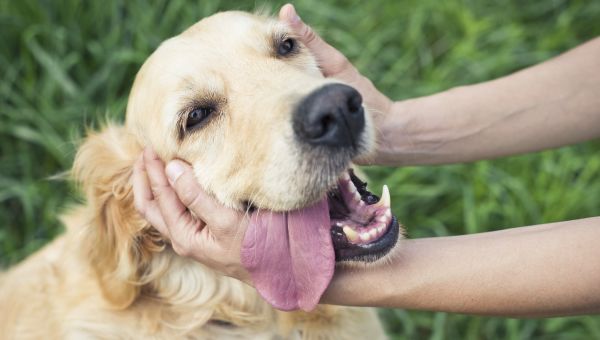7 remarkable ways your pet can add years to your life
Pet ownership brings unconditional love, plus some unexpected health benefits.
Updated on January 23, 2023

There are countless reasons to love your furriest family member—those big adoring eyes, the wet kisses, the warm nuzzles after a long day, not to mention the ways in which pets ease stress and loneliness. And you can add a growing number of health benefits to the list, too. Read on for ways pet ownership can boost your health and add years to your life.

They keep you on your toes
Research shows an active lifestyle results in a longer lifespan—and your pet can help get you moving, says clinical psychologist Shawn Daugherty, PsyD.
Aim to walk your dog for 30 minutes to two hours daily, depending on your fitness level and theirs. Cats need about 30 to 60 minutes of active play each day. Your furry friends will thank you, and your body will benefit. Dog owners are more likely to meet weekly exercise requirements than non-owners or those who skip walk time, according to a 2019 study published in Scientific Reports that surveyed 385 households.

Pets give you a sense of purpose
A sense of purpose doesn’t mean crossing items off a to-do list or overloading your schedule. It means having someone or something that:
- Motivates you to get out of bed each day
- Brings you joy
- Gives you a sense of fulfillment
One 2022 study published in Preventative Medicine found that having a higher sense of purpose was associated with a lower risk of death, regardless of gender or ethnicity. “Probably the number one habit that’s likely to expand your life is finding something you truly care about,” explains Daugherty. “For many, pets provide that source of love, connection and purpose.”

Fur babies strengthen your heart
“When people interact with their pets, their heart rate slows and their blood pressure decreases. For many, a pet brings a sense of calm and inner peace,” says Daugherty. That may be one reason why dog owners are more likely to survive the year after a heart attack than those without a canine companion. For example, a study published in 2019 in Circulation: Cardiovascular Quality and Outcomes looked at 336,313 people who either had a heart attack or a stroke. The researchers found that dog ownership was associated with a lower risk of death one year after either event, regardless of socioeconomic status or other health conditions they had. The study also found that dog owners were less likely to have another heart attack after the first one compared to non-dog owners.
The heart benefits not only apply to dog owners, but to pet owners in general. A review published in Current Hypertension Reports in 2022 determined that pet ownership (cats or dogs) was associated with a lower risk of death from cardiovascular disease causes. For those who already had a cardiovascular disease, it reduced the risk of having another event.

Pets ease anxiety and depression
Nearly one in five adults in the United States live with a mental health condition like anxiety or depression. While medications and treatments vary for each condition, there’s one therapy that can work alongside almost any care plan—being near your pet.
Spending time with your pet can up your level of oxytocin, a hormone responsible for feelings of bonding and security. Oxytocin also:
- Reduces stress
- Boosts confidence
- Encourages social interaction
- Improves memory and learning
On top of that, your pet’s unconditional love may serve as a buffer against everyday stress and a comfort during times of change.

They boost your immune system
“Pets also reduce levels of the stress hormone cortisol,” says Daugherty. “Ongoing stress weakens the immune system, limiting your ability to fight off a variety of serious illnesses. But your pet can counteract this by helping you feel calm and connected.”
Having a dog or cat in the house may strengthen your child’s immune system, too. Exposure to the fur, dander, and germs that pets bring can train their immune system to fight allergies and infections early on. In fact, babies with pets may be less likely to develop asthma or allergies.

Animals help kids grow up happy and strong
Children often find it easier to confide in an animal best friend when they’re hurt or upset. Having a pet can teach kids about empathy and provide comfort as they face milestones in their development.
A 2019 systematic review published in the Review Journal of Autism and Developmental Disorders found that interaction with a therapy dog may help children on the autism spectrum—a range of developmental disorders that often make it difficult to communicate, among other symptoms—have an easier time with social interactions. The benefits included improvement in:
- Verbal communication
- Non-verbal communication, such as making eye contact
- Desired behaviors, such as affection, waiting, and turn taking
- Undesired behaviors, such as tantrums, isolation, and aggression
To find out about adopting an autism therapy dog, contact the North Star Foundation.

Pets complete your tribe
“When you walk your dog, you meet people. Think about it—when you pass someone who’s friendly and happy, and their dog is excited to see you, it's an opportunity to connect,” says Dr. Daugherty.
Finding a close group of friends who share your health habits is linked to an increase in longevity. Reach out to healthy, like-minded animal lovers to help build your friend group. Start a dog-walking group or strike up conversations at the park. Cat owners may be more inclined to indoor gatherings, but luckily, even enjoying quiet time inside with friends can provide a health and mood boost.

Centers for Disease Control and Prevention. Benefits of physical activity. Published November 1, 2021.
Westgarth C, Christley RM, Jewell C, et al. Dog owners are more likely to meet physical activity guidelines than people without a dog: An investigation of the association between dog ownership and physical activity levels in a UK community. Scientific Reports. 2019;9(1).
Miyake K, Kito K, Kotemori A, et al. Association between Pet Ownership and Obesity: A Systematic Review and Meta-Analysis. International Journal of Environmental Research and Public Health. 2020;17(10):3498.
The People's Dispensary for Sick Animals (PDSA). How much exercise does your dog need? No date.
PDSA. Exercising your Cat. Accessed January 2023.
PetMD. How Long Should You Play With Your Cats Each Day? Published December 7, 2018.
Shiba K, Kubzansky LD, Williams DR, et al. Purpose in life and 8-year mortality by gender and race/ethnicity among older adults in the U.S. Preventive Medicine. 2022;164:107310.
Mubanga M, Byberg L, Egenvall A, et al. Dog Ownership and Survival After a Major Cardiovascular Event. Circulation: Cardiovascular Quality and Outcomes. 2019;12(10).
Surma S, Oparil S, Narkiewicz K. Pet Ownership and the Risk of Arterial Hypertension and Cardiovascular Disease. Current Hypertension Reports. Published online April 22, 2022.
National Institute of Mental Health. Mental Illness. Published January 2022.
Pendry P, Vandagriff JL. Animal Visitation Program (AVP) Reduces Cortisol Levels of University Students: A Randomized Controlled Trial. AERA Open. 2019;5(2):233285841985259.
Salas Garcia MC, Schorr AR, Arnold W, et al. Pets as a Novel Microbiome-Based Therapy. Pets as Sentinels, Forecasters and Promoters of Human Health. Published online December 1, 2019:245-267.
Fall T, Ekberg S, Lundholm C, et al. Dog characteristics and future risk of asthma in children growing up with dogs. Scientific Reports. 2018;8(1).
Hill J, Ziviani J, Driscoll C, et al. Can Canine-Assisted Interventions Affect the Social Behaviours of Children on the Autism Spectrum? A Systematic Review. Review Journal of Autism and Developmental Disorders. 2018;6(1):13-25.
Vila J. Social Support and Longevity: Meta-Analysis-Based Evidence and Psychobiological Mechanisms. Frontiers in Psychology. 2021;12.
Hodgson K, Barton L, Darling M, et al. Pets' Impact on Your Patients' Health: Leveraging Benefits and Mitigating Risk. J Am Board Fam Med. 2015 Jul-Aug;28(4):526-34.
Human Animal Bond Research Initiative Foundation (HABRI). The Health Care Cost Savings of Pet Ownership. December 2015.
More On


video

article

slideshow


video


video
